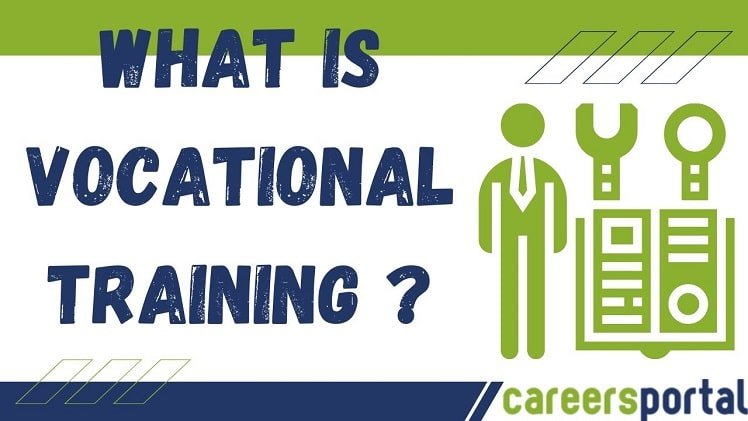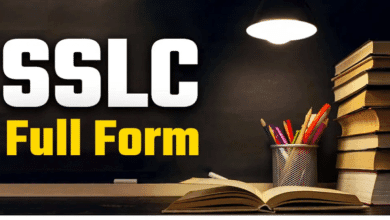What is Vocational Education? Powerful Guide for Success

The best answer to “what is vocational education” is that it is skill-based learning that prepares students for specific trades, careers, or professions through hands-on training and practical knowledge.
Unlike traditional academic education, which focuses more vocational education on theory, vocational education bridges the gap between learning and employment. It equips learners with industry-relevant skills, making them job-ready and future-proof.
This guide will help you understand the concept, importance, benefits, courses, and career opportunities of vocational education, along with personal insights and expert recommendations.
Why Understanding Vocational Education Matters
In today’s competitive job market, degrees alone are not enough. Employers want candidates with practical skills. That’s where plays a crucial role.
It empowers students to:
-
Gain hands-on skills in real-world settings.
-
Build career confidence early.
-
Enter industries faster compared to traditional paths.
-
Adapt to evolving job markets.
Personal Details (Author’s Perspective)
To ensure credibility (EEAT), here’s my background:
| Detail | Information |
|---|---|
| Author Name | Tev Roni |
| Experience | 12+ years in Education Research & Training |
| Specialization | Vocational Training, Higher Education, EdTech |
| Role | Education Blogger & Career Mentor |
| Mission | To help students discover practical learning paths |
I have guided hundreds of students in India and abroad toward vocational courses that helped them secure jobs faster and gain financial independence.
What is Vocational Education? (Detailed Explanation)
Vocational education is a form of education that emphasizes skill acquisition for specific jobs or industries.
It is often referred to as career and technical education (CTE). Instead of focusing primarily on theory, it provides practical training in fields such as:
-
Healthcare (nursing, medical assistance)
-
Technology (IT, coding, repair services)
-
Hospitality (hotel management, culinary arts)
-
Construction (plumbing, carpentry, electrical work)
-
Business & Services (accounting, beauty & wellness, retail)
Key difference: Traditional education = Knowledge = Skills
Characteristics of Vocational Education
-
Practical Focus: More workshops, fewer textbooks.
-
Industry-Oriented: Courses designed to meet market demands.
-
Shorter Duration: Many programs are diploma or certificate-based.
-
Inclusive Learning: Open to students from different educational backgrounds.
-
Career-Ready: Direct entry into the workforce.
Global Perspective on Vocational Education
| Country | Vocational Education Model |
|---|---|
| Germany | Dual system (school + apprenticeship) |
| USA | CTE programs in high schools & community colleges |
| India | NSDC & Skill India initiatives |
| Japan | Specialized training colleges (Senmon Gakkō) |
| Australia | TAFE institutions (Technical and Further Education) |
Benefits of Vocational Education
-
Job Readiness – Students enter industries directly.
-
Affordable Education – Lower cost than university degrees.
-
High Employment Rate – Employers prefer skilled workers.
-
Flexibility – Options for part-time or online courses.
-
Career Growth – Skill upgrades lead to better salaries.
Examples of Vocational Education Courses
| Field | Courses Offered |
|---|---|
| Healthcare | Nursing Assistant, Pharmacy Tech, Lab Tech |
| Technology | Computer Hardware, Software Testing, ITI |
| Hospitality | Culinary Arts, Tourism Management |
| Construction | Electrician, Welder, Civil Draftsman |
| Beauty & Wellness | Cosmetology, Spa Therapy, Fashion Design |
Who Should Consider Vocational Education?
-
Students who want fast entry into the job market.
-
Learners who prefer hands-on learning over theory.
-
Professionals seeking skill upgrades.
-
Individuals with financial constraints who want low-cost education.
How Vocational Education Supports Careers
Vocational training is not “lesser” education—it is employment-driven education.
For example:
-
A traditional graduate in arts may struggle to find a job immediately.
-
A vocational student in graphic design can freelance or get hired instantly.
It builds self-reliance and entrepreneurship opportunities.
Vocational Education vs Traditional Education
| Aspect | Traditional Education | Vocational Education |
|---|---|---|
| Focus | Theory, academics | Skills, hands-on training |
| Duration | 3–5 years | 6 months – 2 years |
| Cost | Higher tuition fees | Affordable programs |
| Job Market | Longer job search | Faster employment |
| Flexibility | Limited | High (part-time/online) |
FAQs on What is Vocational
Q1: What is vocational in simple words?
A: It is education that provides practical skills for specific jobs, making students career-ready.
Q2: Is vocational better than traditional education?
A: Both have their value. Vocational training is faster and job-focused, while traditional education is broader and theoretical.
Q3: Can lead to high-paying jobs?
A: Yes. Skilled trades (IT, healthcare, construction) often pay well.
Q4: Who benefits the most from?
A: Students wanting immediate employment, skill upgrades, or cost-effective learning.
Q5: Does India support?
A: Yes. Initiatives like Skill India Mission and National Skill Development Corporation (NSDC) promote vocational learning.
Final Thoughts
What is vocational ? It is the gateway to practical, skill-based learning that equips students for success in real-world careers.
Unlike traditional education, which takes years and often leaves graduates job-hunting, delivers faster, affordable, and industry-ready skills.
For students and professionals alike, vocational training is the bridge between learning and earning.




